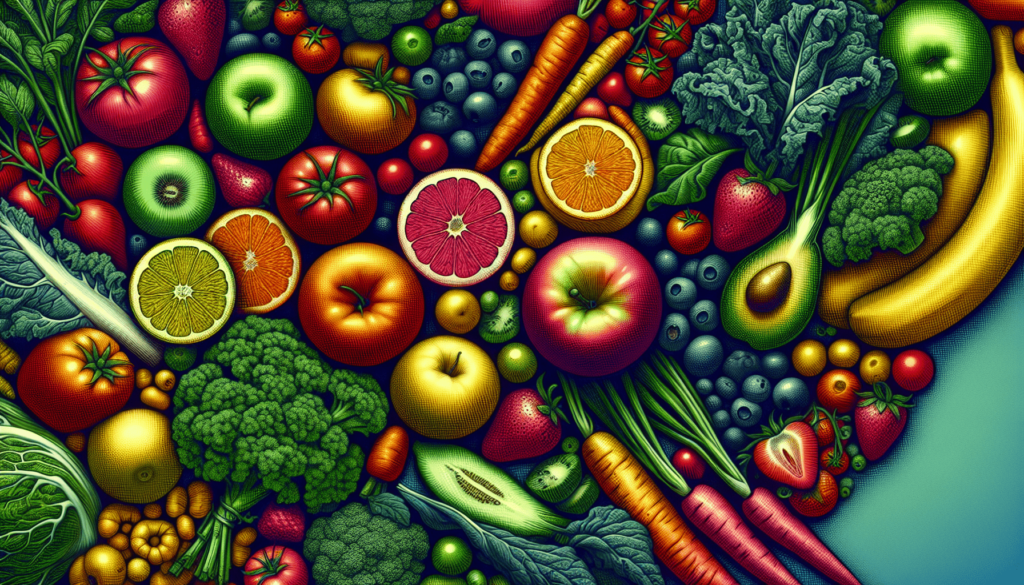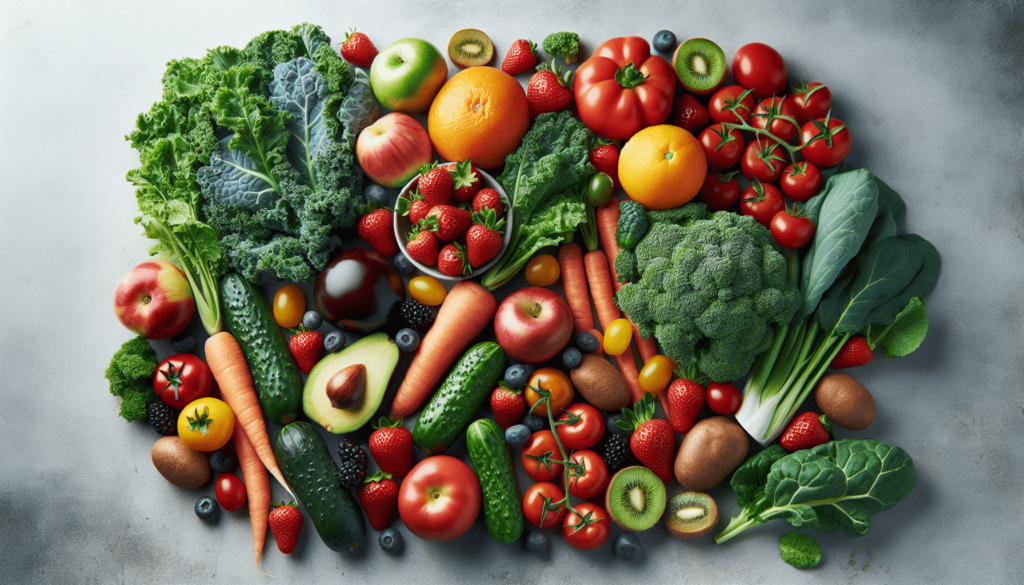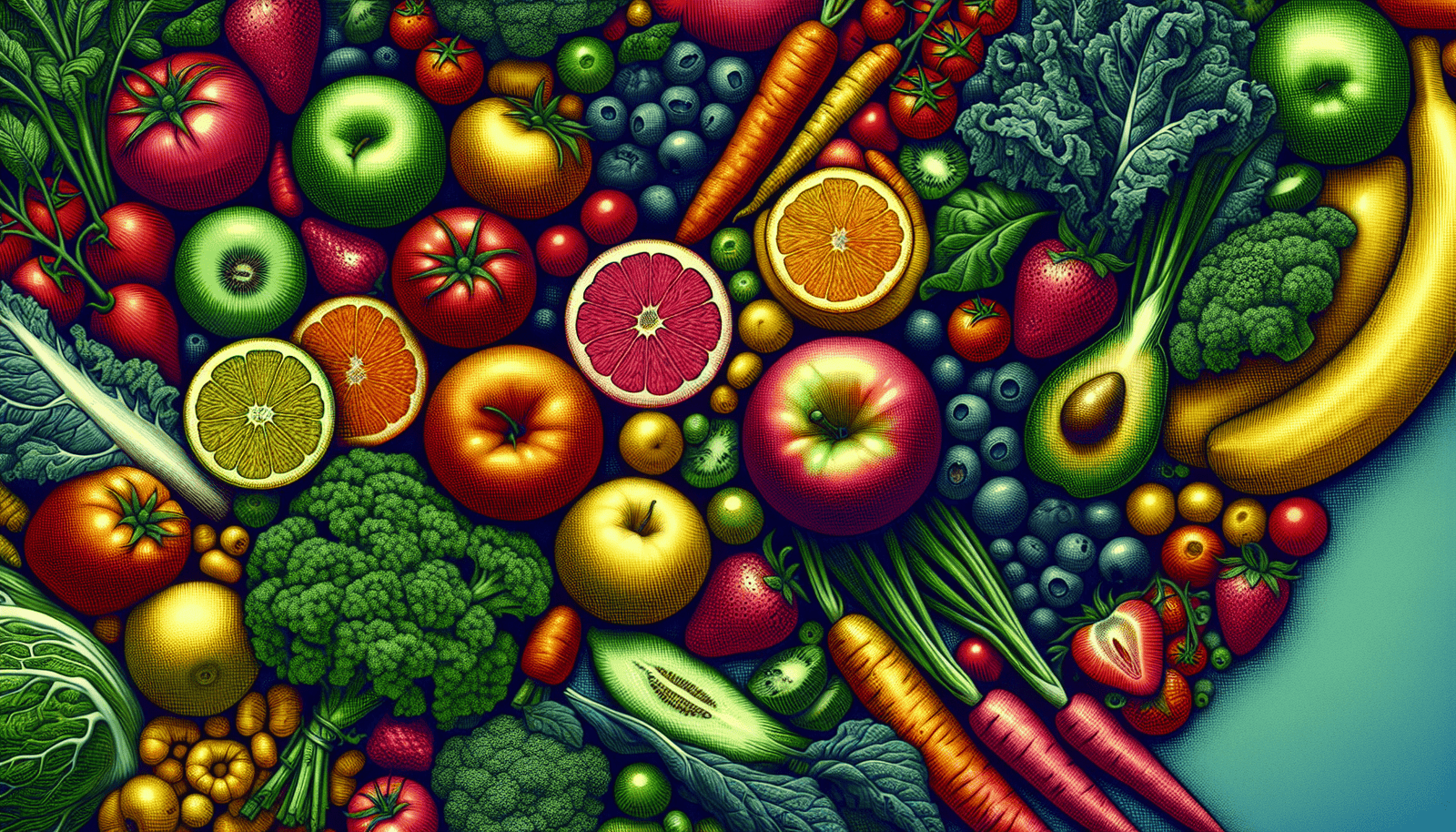Organic Food And Diabetes
Have you ever wondered how organic food can impact diabetes management? In this insightful article, you will learn about the benefits of incorporating organic food into your diet if you are living with diabetes. From fresh fruits and vegetables to whole grains and lean proteins, organic food can play a pivotal role in maintaining blood sugar levels and overall health. Let’s explore the powerful connection between organic food and diabetes.
What Is Organic Food?
Organic food refers to crops that are grown without the use of synthetic pesticides, fertilizers, or GMOs. Livestock raised for organic meat must have access to the outdoors and be fed organic feed. Choosing organic food means prioritizing natural farming methods that are environmentally sustainable and free of harmful chemicals.
How Can Organic Food Benefit People with Diabetes?
For individuals living with diabetes, choosing organic food can have a significant impact on their overall health and well-being. Organic fruits and vegetables are free from harmful pesticides, making them a safe option for managing blood sugar levels. Additionally, organic meats and dairy products are often of higher quality, providing essential nutrients without added hormones or antibiotics.
The Importance of Organic Produce
One of the key benefits of organic food for people with diabetes is the absence of synthetic pesticides on organic produce. Pesticides can have adverse effects on health, particularly for those with diabetes who need to maintain stable blood sugar levels. By choosing organic fruits and vegetables, you can reduce your exposure to harmful chemicals and enjoy the natural goodness of fresh produce.

Benefits of Organic Meat and Dairy
Organic meat and dairy products are another essential component of a diabetes-friendly diet. For individuals with diabetes, it is crucial to prioritize lean proteins and high-quality dairy options. Organic meat and dairy products are often free from added hormones and antibiotics, making them a healthier choice for managing blood sugar levels and overall health.
Whole Grains and Organic Food
Whole grains are an important source of carbohydrates for individuals with diabetes, providing essential nutrients and fiber to support overall health. When it comes to organic food, choosing whole grains such as quinoa, brown rice, and oats can offer numerous benefits. Organic whole grains are free from synthetic pesticides and often contain higher levels of nutrients compared to conventionally grown grains.
The Role of Organic Legumes and Pulses
Legumes and pulses are excellent sources of plant-based proteins and fiber, making them a valuable addition to a diabetes-friendly diet. Organic legumes and pulses are grown without synthetic pesticides, ensuring that you can enjoy their health benefits without the risk of harmful chemical exposure. Incorporating organic lentils, chickpeas, and beans into your meals can help stabilize blood sugar levels and promote better overall health.

Understanding Organic Oils and Fats
When it comes to choosing fats and oils for cooking, opting for organic options can be beneficial for individuals with diabetes. Organic oils such as olive oil, coconut oil, and avocado oil are rich in healthy fats and antioxidants, providing essential nutrients without harmful additives. By choosing organic oils and fats, you can support heart health and maintain stable blood sugar levels.
Organic Snacks and Treats for Diabetes
Snacking can be a challenging aspect of managing diabetes, but choosing organic snacks and treats can make a significant difference in your overall health. Organic options such as nuts, seeds, and dried fruit can provide satisfying and nutritious snack choices without added sugars or artificial ingredients. Making mindful choices when selecting organic snacks can help you maintain blood sugar control and support your wellness goals.
Including Organic Beverages in Your Diet
When it comes to beverages, choosing organic options can be a smart choice for individuals with diabetes. Organic tea, coffee, and herbal infusions can provide antioxidant properties and hydration without added sugars or artificial ingredients. Opting for organic beverages can help you stay hydrated and enjoy flavorful options that support your overall health and well-being.
Transitioning to an Organic Diet for Diabetes
If you are considering transitioning to an organic diet to better manage your diabetes, it’s essential to do so gradually and with careful consideration. Start by incorporating more organic fruits and vegetables into your meals, then gradually introduce organic meats, dairy products, and grains. Experiment with new recipes and flavors to discover delicious ways to enjoy organic food while supporting your diabetes management goals.
Tips for Shopping for Organic Food
When shopping for organic food, it’s important to know what to look for and how to make informed choices. Here are some tips to help you navigate the aisles and select the best organic options for your diabetes-friendly diet:
-
Read Labels: Look for the USDA Organic seal on packaged foods and check for organic fruits and vegetables in the produce section.
-
Choose Local: Whenever possible, choose locally grown organic produce to support sustainable agriculture and enjoy fresh, in-season foods.
-
Focus on Quality: Select high-quality organic meats, dairy products, and grains to ensure you are getting the most nutrients and benefits from your food choices.
Creating Delicious Organic Recipes for Diabetes
Cooking with organic ingredients can inspire creativity and provide tasty meal options that support your diabetes management goals. Consider trying the following organic recipes to add variety and flavor to your diabetes-friendly diet:
Organic Quinoa Salad
Ingredients:
- 1 cup organic quinoa
- 2 cups water
- 1 organic cucumber, diced
- 1 organic tomato, diced
- 1/4 cup organic fresh parsley, chopped
- 2 tbsp organic olive oil
- Juice of 1 organic lemon
- Salt and pepper to taste
Instructions:
- Rinse quinoa under cold water and cook according to package instructions.
- In a large bowl, combine cooked quinoa, cucumber, tomato, and parsley.
- In a small bowl, whisk together olive oil, lemon juice, salt, and pepper.
- Pour dressing over quinoa salad and toss to combine.
- Serve chilled as a refreshing and nutritious side dish.
Organic Chicken Stir-Fry
Ingredients:
- 1 lb organic chicken breast, sliced
- 2 cups organic mixed vegetables (bell peppers, broccoli, snap peas)
- 2 tbsp organic soy sauce
- 1 tbsp organic sesame oil
- 1 tsp organic garlic, minced
- 1 tsp organic ginger, grated
Instructions:
- In a large skillet, heat sesame oil over medium heat.
- Add chicken breast slices and cook until browned.
- Add vegetables, soy sauce, garlic, and ginger to the skillet.
- Stir-fry until chicken is cooked through and vegetables are tender.
- Serve hot over cooked organic brown rice for a flavorful and balanced meal.
Incorporating Organic Food into Your Lifestyle
Making organic food a regular part of your lifestyle can have numerous benefits for managing diabetes and supporting overall health. By prioritizing organic fruits and vegetables, meats, dairy products, and grains, you can enjoy a diet rich in essential nutrients and free from harmful chemicals. Experiment with new flavors and ingredients to discover the joy of organic cooking and its positive impact on your well-being.
The Future of Organic Food and Diabetes
As interest in organic food continues to grow, so does the potential for positive impacts on diabetes management and overall health. By choosing organic options and supporting sustainable agriculture practices, individuals with diabetes can enjoy a wide range of nutritious and delicious foods that promote stable blood sugar levels and well-being. Embrace the power of organic food in your diabetes journey and experience the many benefits it has to offer.
In conclusion, the connection between organic food and diabetes is a powerful one that highlights the importance of making informed and mindful choices about your diet. By incorporating organic fruits and vegetables, meats, dairy products, and grains into your meals, you can enjoy a wide range of health benefits while supporting stable blood sugar levels and overall wellness. Make the switch to organic food today and discover the transformative impact it can have on your diabetes management journey.


